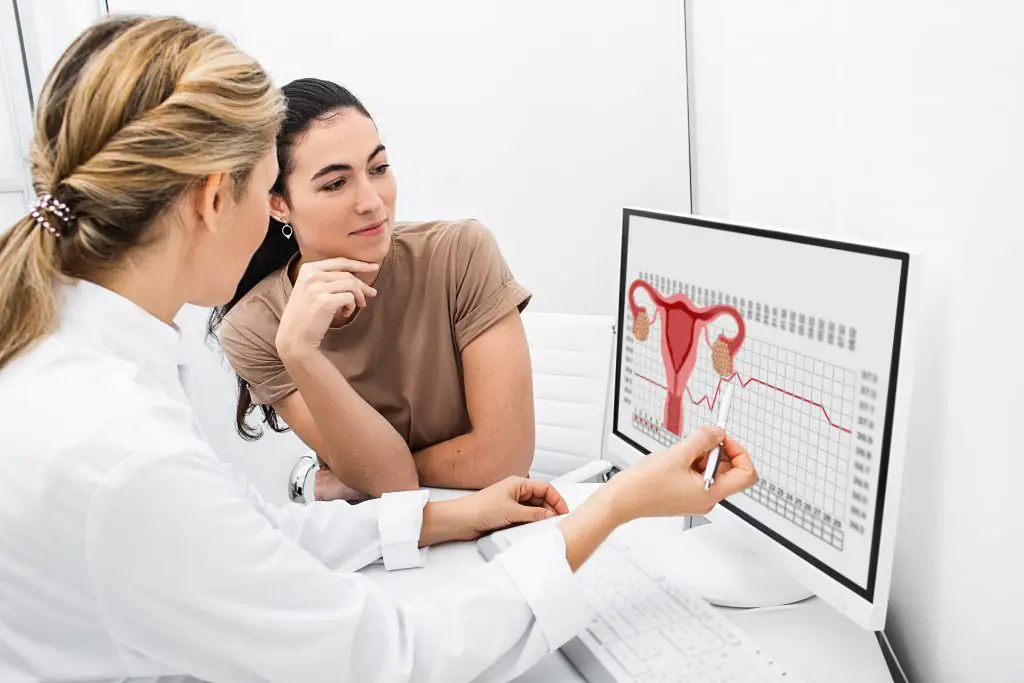A hormonal condition known as polycystic ovary syndrome (PCOSCO) affects women who are of reproductive age, usually between the ages of 15 and 44. Across the world, 1 in 10 women is thought to have PCOS. The illness manifests in a variety of ways, such as irregular periods, excessive hair growth, weight gain, acne, and infertility.
PCOS is a common hormonal disorder that affects up to 5 million women in the U.S. Symptoms can include irregular periods, weight gain, acne, and reduced fertility. There are many ways to prevent or treat PCOS, but it’s important to know what symptoms to look for and what interventions may be most effective for you.
What are PCOSCO its symptoms and preventions?
PCOSCO, or Polycystic Ovary Syndrome, is a hormonal disorder that affects women of reproductive age. The condition occurs when the body produces high levels of androgens, also known as male hormones. This leads to an imbalance in the female sex hormones, causing irregular periods and other symptoms.
Some common symptoms of PCOSCO include irregular periods or no periods at all, acne, excessive hair growth on the face and body, weight gain or difficulty losing weight, and thinning hair on the head. In addition to these physical symptoms, PCOSCO can also lead to fertility issues due to problems with ovulation.
While there is no known cure for PCOSCO at this time, there are several preventative measures that women can take to manage their symptoms. These include maintaining a healthy diet and exercise routine to help regulate insulin levels in the body (as insulin resistance is often associated with PCOSCO), taking birth control pills to regulate menstrual cycles and reduce excess hair growth, and working with a healthcare professional to develop a personalized treatment plan based on individual needs. Early diagnosis and management of PCOSCO can help prevent long-term complications such as diabetes and heart disease.
Treatment and Care PCOS
The first-line therapy for teenage girls and women with polycystic ovarian syndrome includes diet and exercise (PCOSCO). Anovulation, hirsutism, and irregular menstrual cycles are all treated with medications. They are not, however, a long-term fix.
The PCOSCO patient can lose weight and get more exercise with the help of a proper diet and exercise routine. They can also encourage regular ovulation, reduce blood glucose levels, and improve the body’s usage of insulin.
Those with PCOS frequently have increased insulin levels, according to reports. Insulin is a hormone secreted by the pancreas. It helps cells convert sugar, sometimes referred to as glucose, into energy.
Your blood sugar levels can rise if you don’t create enough insulin. Moreover, it happens in cases of insulin resistance, which limits proper insulin absorption.
If you have insulin resistance, your body may attempt to maintain normal blood sugar levels by producing excessive amounts of insulin. If your insulin levels are too high, your ovaries may produce more androgens, such as testosterone.
A higher BMI may also contribute to the development of insulin resistance. Insulin resistance can make it harder to lose weight, which is why PCOS patients commonly have this issue.
A diet high in refined carbohydrates, such as starchy and sugary foods, might aggravate insulin resistance and hence make weight loss more difficult.
Possible treatment
One possible treatment for PCOS is medication. Birth control pills, which contain hormones like estrogen and progestin, can regulate menstrual cycles and reduce excess hair growth. Another medication option is metformin, a drug used to treat diabetes that can help regulate insulin levels in women with PCOS.
In addition to medication, lifestyle changes may also be effective in treating PCOS symptoms. Losing weight through proper diet and exercise has been shown to improve hormonal imbalances and insulin resistance associated with the condition. Managing stress levels through practices like yoga or meditation may also be helpful.
It’s important to note that there is no one-size-fits-all approach to treating PCOS as every woman’s experience with the condition is unique. A healthcare provider can work with individuals to determine the best course of treatment based on their specific symptoms and overall health status.
The Different Types of PCOS
There are several different types of comorbidities. Some of the common comorbidities include:
- High levels of male hormones ( Hyperandrogenism)
- Insulin resistance
- Obesity or overweight
- Lack of ovulation (Anovulatory cycles)
- Type II diabetes mellitus
- Cognitive impairment
- Heart disease
- Psychiatric disorders such as anxiety and depression
PCOS, or Polycystic Ovary Syndrome, is a hormonal disorder that affects many women. However, not all cases of PCOS are the same. There are four different types of PCOS, each with its own unique set of symptoms and characteristics.
The first type is Insulin-Resistant PCOS. This type is marked by high levels of insulin in the body, which can lead to weight gain and difficulty losing weight. Women with this type also often have dark patches on their skin and may be diagnosed with Type 2 Diabetes later in life.
The second type is Inflammatory PCOS. This occurs when there is inflammation in the ovaries or elsewhere in the body. Symptoms include pain during intercourse and an increased risk for heart disease.
The third type is Hidden-cause PCOS. This occurs when there are underlying causes for the hormonal imbalance that leads to PCOS symptoms such as thyroid dysfunction or excessive exercise.
Finally, there’s Pill-induced PCOS which results from prolonged birth control usage that can disrupt normal hormone production leading to common signs like acne and weight gain.
It’s important for women who suspect they have PCOS to understand which type they have so they can work with their healthcare provider to create an effective treatment plan tailored specifically to their needs.
Management of PCOS
One of the most effective ways to manage PCOS is through lifestyle changes. A healthy diet that is low in carbohydrates, and refined sugar and high in protein and fiber can help regulate insulin levels and keep blood sugar stable. Exercise is also important as it can improve insulin sensitivity, decrease inflammation, and promote weight loss.
Another management option for PCOS is medication. Birth control pills are often prescribed to regulate menstruation and reduce symptoms such as acne or excess hair growth. Metformin, a drug used to treat diabetes, can also be helpful as it reduces insulin resistance which is often associated with PCOS.
Here are five preventive measures:
1. Consume a balanced diet. Be sure you eat enough fruits, veggies, complete grains, and lean protein sources each day.
2. Regularly moving about. Exercise decreases the likelihood of developing PCOS, normalizes hormone levels, and helps with weight reduction and general health improvement.
3. Reduce stress levels in your life. Stress can cause hormonal irregularities, which can lead to PCOS symptoms.
Take time each day to de-stress and relax; doing so will help to regulate your body’s natural cycle.
4. Any underlying medical conditions that may be causing PCOS symptoms should be treated. The balance of hormones can be impacted by thyroid and diabetic conditions, which might result in polycystic ovarian syndrome development.
5. Menstrual cycle journals should be kept for at least two years to track any changes in symptoms and your progress in avoiding the disease.
Prevention of PCOSCO
PCOS is a condition that affects women of reproductive age. It can lead to excessive blood pressure, obesity, and problems becoming pregnant since it changes your hormones. There are several alternatives available to you to assist manage your disease. These are five methods for prevention.
Polycystic ovary syndrome (PCOS) is a hormonal disorder that affects women of reproductive age. It is characterized by the presence of small cysts in the ovaries, irregular menstruation, and high levels of male hormones. PCOSCO or Polycystic Ovary Syndrome Symptoms and Preventions aim to help women prevent or manage this condition.
One way to prevent PCOSCO is through regular exercise. Exercise can help regulate insulin levels which can be an underlying cause of PCOS. A healthy diet can also aid in preventing PCOSCO as it helps control weight, blood sugar levels, and hormone imbalances.
1. Eat a well-balanced diet. Ensure that you consume an adequate amount of fruits and vegetables, whole grains, and lean protein sources.
2. Exercise regularly. Exercise not only aids in weight loss and overall health improvement but also normalizes hormone levels and reduces the risk of developing PCOS.
3. Minimize the amount of stress in your life. Hormonal imbalances brought on by stress might result in PCOS symptoms.
Spend some time each day unwinding and relaxing; doing so will assist in balancing your body’s natural cycles.
4. Any underlying medical conditions that may be causing PCOS symptoms should be treated. The hormone balance can be impacted by thyroid and diabetic conditions, which might result in polycystic ovarian syndrome.
5. Menstrual cycle journals should be kept for at least two years to track any changes in symptoms and your progress in avoiding the disease.
What is polycystic ovary syndrome?
Polycystic ovary syndrome, also known as PCOS, is a hormonal disorder that affects women of reproductive age. It is characterized by the presence of multiple small cysts in the ovaries, irregular menstrual cycles, and high levels of male hormones called androgens. Symptoms may include infertility, weight gain or difficulty losing weight, acne, excessive hair growth on the face and body, and thinning hair on the scalp.
While there is no cure for PCOS, there are several ways to manage its symptoms. Lifestyle changes such as regular exercise and a healthy diet can help regulate insulin levels and improve fertility. Medications such as birth control pills or metformin can also be prescribed to regulate menstrual cycles and reduce insulin resistance. In some cases, surgery may be recommended to remove cysts from the ovaries.
Obesity, insulin resistance, and type 2 diabetes all contribute to this condition. The severity and progression of PCOSCO will be influenced by several concomitant illnesses.
It can occasionally be difficult to diagnose this illness because of its propensity to resemble other medical problems. To ascertain whether you have it, your doctor will do a physical examination and may suggest tests to search for hormonal irregularities. If you have PCOS, your doctor may recommend treatments to alleviate your symptoms.
Causes of PCOSCO
While the exact cause of PCOS is unknown, research suggests that genetics and lifestyle factors such as diet and exercise may play a role. Women with a family history of PCOS or who are overweight or obese are more likely to develop the condition.
Blood testing and imaging tests like ultrasounds can be used to diagnose PCOS. PCOS treatments seek to control symptoms and lower the chance of comorbid health issues. Menstrual cycles can be regulated and excess hair growth and acne can be reduced with the aid of medications such as birth control pills, metformin, and anti-androgens. To stimulate ovulation in infertile women, drugs like clomiphene citrate or letrozole may be used.
How does the syndrome develop?
Polycystic ovary syndrome, or PCOS, develops due to hormonal imbalances in the female body. Specifically, women with PCOS tend to have higher levels of androgens (male hormones) than normal. This leads to a range of symptoms, including irregular periods, acne, excessive hair growth on the face and body (hirsutism), weight gain, and difficulty losing weight.
The exact cause of these hormonal imbalances is not fully understood but may involve insulin resistance (when the body does not effectively use insulin) or an overproduction of luteinizing hormone (LH) from the pituitary gland. Additionally, genetic factors may play a role in developing PCOS as it often runs in families.
PCOS is typically diagnosed through a combination of physical exams, blood tests, and ultrasounds. Women who suspect they may have PCOS should speak with their healthcare provider for proper diagnosis and treatment options. Early intervention can help prevent long-term health risks associated with PCOS such as diabetes and cardiovascular disease.
Symptoms and signs
Among the symptoms of PCOS are:
- Neck and armpit skin tags
- Period absence, irregularity, or extremely light periods
- Cysts on the ovaries that are large or many
- Excessive body hair, especially on the breasts, stomach, and back (hirsutism)
- Gaining weight, particularly around the stomach (abdomen)
- Male-pattern baldness or hair thinning due to oily or acne-prone skin
- Skin patches on the back of the neck, behind the breasts, and in the armpits
PCOS, or Polycystic Ovary Syndrome, affects millions of women worldwide. The condition is characterized by an imbalance in hormones that leads to the growth of cysts on the ovaries. This hormonal imbalance can cause a variety of symptoms, including irregular periods, acne, weight gain, and excess hair growth.
One of the most common symptoms of PCOS is irregular menstrual cycles. Women with PCOS often experience longer or shorter cycles than average and may skip periods altogether. Additionally, some women with PCOS may experience heavy bleeding during their periods.
Another common symptom of PCOS is acne. Women with this condition often have high levels of testosterone in their bodies which can lead to breakouts on the face and body. In some cases, these breakouts can be severe and difficult to treat with over-the-counter products.
To prevent or manage the symptoms of PCOS, women need to maintain a healthy lifestyle that includes regular exercise and a balanced diet. Additionally, medications like birth control pills or Metformin may be prescribed by doctors to help regulate hormonal imbalances associated with this condition.
Health risks associated with PCOS
Polycystic Ovary Syndrome (PCOS) is a hormonal disorder that affects women of reproductive age. PCOS causes the ovaries to produce an excessive amount of androgens, resulting in irregular menstrual cycles, weight gain, acne, hirsutism (excessive hair growth on the face and body), and infertility. However, it’s not just these visible symptoms that can cause concern for women with PCOS.
Polycystic ovary syndrome (PCOS) is a common hormonal disorder among women of reproductive age. It is characterized by an excess of male hormones (androgens) in the body, irregular menstrual cycles, and the presence of multiple small cysts on the ovaries.
PCOS is associated with several health risks, including:
- Infertility: Irregular ovulation and hormonal imbalances associated with PCOS can make it difficult for women to conceive.
- Type 2 diabetes: Insulin resistance is common in women with PCOS, which increases the risk of developing type 2 diabetes.
- High blood pressure and heart disease: PCOS is linked to high blood pressure, which increases the risk of developing heart disease.
- Endometrial cancer: Women with PCOS are at a higher risk of developing endometrial cancer due to irregular menstrual cycles and estrogen imbalances.
- Depression and anxiety: PCOS can have a significant impact on a woman’s mental health, leading to depression and anxiety.
- Sleep apnea: Women with PCOS are at a higher risk of developing sleep apnea, a condition characterized by pauses in breathing during sleep.
- Weight gain and obesity: PCOS is often associated with weight gain and obesity, which can further exacerbate the health risks associated with the condition.
Women with PCOS need to work with their healthcare providers to manage their condition and reduce their risk of developing these and other health problems. This may include lifestyle changes, such as exercise and a healthy diet, as well as medications to regulate hormones and manage symptoms.
Here are some long-term health risks that are linked to the disease:
Obesity :
One of the things that go together the most frequently is this. This is probably because being overweight increases your risk of developing type 2 diabetes as well as other chronic illnesses including cancer, heart disease, and stroke.
Type 2 diabetes :
Another comorbidity that frequently occurs is diabetes. Having diabetes increases your risk of developing pregnancy-related complications such as gestational diabetes and high blood pressure. Moreover, it might result in insulin resistance, which is one of the primary causes of PCOS.
Diabetes during pregnancy :
About half of the women who have polycystic ovary syndrome also have this. Gestational diabetes usually goes away after the baby is born, but it can sometimes lead to type II diabetes in the future.
Infertility or a low birth rate :
One of the most prevalent causes of infertility in women is PCOS, which is treatable. It is challenging for eggs to develop and emerge from the ovaries in women with PCOS due to a hormonal imbalance in their bodies (ovulation). You cannot get pregnant if you don’t ovulate.
Endometrial Cancer :
Women who use PCOSCOS are 6% more likely to get endometrial cancer before menopause. Being overweight, having too much insulin in the blood (hyperinsulinemia), and having diabetes—all of which are frequent in women with PCOS—are the main risk factors for endometrial cancer.
Abnormal hormone levels, such as those caused by excess estrogen, testosterone, or insufficient progesterone, are also associated with PCOS. This hormonal imbalance can lead to several forms of endometrial cancer.
Obstructive sleep apnea (OSA) :
Obstructive sleep apnea (OSA) is a common and dangerous sleep disorder in which you stop breathing while you sleep. If you have OSA, your airway often gets blocked while you sleep. This cuts down on how much air gets to your lungs.
One study found that women with PCOS are 5–10 times more likely to have OSA than women without PCOS. “Electronic commerce” means selling goods and services over the Internet. Research shows that women with PCOS are more likely to have trouble sleeping or feel tired during the day. These could be symptoms of OSA.
Stress or depression :
Polycystic ovaries can cause a woman to gain weight, which in turn makes her stress hormones rise. Women with PCOS are also more likely to be anxious than women who don’t have PCOS.
This is likely because PCOS can make it hard to have children and make it hard to control hormones. Mood swings are also common in women, which can make them feel anxious or sad.
Blood pressure is high
High blood pressure can be a serious issue for people with PCOSCO. This condition occurs when the heart pumps blood through the arteries at a higher-than-normal rate. High blood pressure can cause damage to the arteries and lead to heart disease, stroke, or kidney failure. People with PCOSCO are more likely to have high blood pressure due to insulin resistance and weight gain.
To prevent high blood pressure, it is essential to maintain a healthy lifestyle that includes regular exercise and a balanced diet. Exercise helps lower blood pressure by improving circulation and reducing stress levels. A nutritious diet rich in fruits, vegetables, whole grains, and lean protein sources can also help lower blood pressure levels.
If you have been diagnosed with high blood pressure, it is important to work closely with your healthcare provider on an appropriate treatment plan. This may include medications like diuretics or beta-blockers as well as lifestyle modifications such as weight loss or sodium restriction. By managing your high blood pressure effectively, you can improve your overall health outcomes and reduce your risk of developing serious complications associated with this condition.
Vegetables with green leaves
Green leafy vegetables are a great source of nutrition for women with Polycystic Ovary Syndrome(PCOS). They are rich in vitamins and minerals that can help prevent the development of PCOS symptoms. Vegetables such as spinach, kale, collard greens and broccoli contain high levels of folate, which is essential for preventing birth defects.
In addition to folate, green leafy vegetables also contain high levels of iron. Women with PCOS often experience heavy bleeding during their menstrual cycles and consuming iron-rich foods can help prevent anemia. These vegetables also have anti-inflammatory properties that can reduce inflammation in the body caused by PCOS.
Finally, green leafy vegetables are low in calories and carbohydrates which makes them an ideal choice for women trying to lose weight with PCOS. Incorporating these nutrient-packed veggies into your diet is easy- add them to salads, and smoothies or sauté them with some garlic or ginger for a delicious side dish!
Depression or Anxiety
Depression and anxiety are two common mental health issues that can be associated with PCOSCO or Polycystic Ovary Syndrome. Women with PCOSCO are more likely to experience depression and anxiety, possibly due to the hormonal imbalances and physical symptoms they face. Mood swings, irregular periods, acne breakouts, weight gain, and infertility caused by PCOSCO can negatively impact a woman’s self-esteem and overall well-being.
Women with PCOSCO need to seek professional help if they experience symptoms of depression or anxiety. Treatment options may include medication, therapy or counseling sessions, lifestyle changes such as exercise and a healthy diet. Self-care practices like yoga or meditation can also help manage stress levels associated with PCOSCO.
In addition to seeking professional help, women can also find support through peer groups or online communities where they can connect with others who share similar experiences. Women with PCOSCO need to prioritize their mental health alongside their physical health by seeking appropriate treatment options and support systems.
Signs and symptoms of PCOS
PCOS or Polycystic Ovary Syndrome is a hormonal disorder that affects women of reproductive age. One of the hallmark signs of this condition is irregular periods, which can range from infrequent to absent. Some women may also experience heavy bleeding during their menstrual cycle.
Another common symptom of PCOS is the presence of cysts on the ovaries. These cysts form when follicles (fluid-filled sacs) fail to release eggs, causing them to accumulate in the ovary. This can lead to pain and discomfort in the lower abdomen.
Women with PCOS may also experience weight gain, particularly in the midsection area, and difficulty losing weight. Other symptoms may include acne, excessive hair growth on the face and body (hirsutism), thinning hair on the scalp, and skin tags. It’s important for women experiencing any of these symptoms to consult with their healthcare provider for proper diagnosis and treatment options.
Anxiety or depression
Anxiety and depression are common mental health disorders that can affect women with polycystic ovary syndrome (PCOS). PCOS is a hormonal disorder that affects the ovaries, leading to several symptoms including irregular periods, weight gain, acne, and hair loss. Research has shown that women with PCOS may have an increased risk of anxiety and depression due to the emotional stress associated with their condition.
Symptoms of anxiety include constant worry or fear, irritability, trouble sleeping, and difficulty concentrating. Depression symptoms include feelings of sadness or hopelessness, loss of interest in activities once enjoyed, changes in appetite or sleep patterns, and thoughts of self-harm or suicide. Women with PCOS need to recognize the signs and symptoms of anxiety or depression so they can seek support from a healthcare professional.
Prevention strategies for managing anxiety or depression associated with PCOS include regular exercise, and maintaining a healthy diet rich in fruits and vegetables while avoiding processed foods high in sugar and carbohydrates. It is also essential to maintain a consistent sleep schedule each day as well as practice stress-reducing techniques such as meditation or yoga regularly. Seeking help from a mental health professional can also be beneficial since they can provide additional resources such as talk therapy or medication if necessary.
Consume a low-glycemic-index diet (GI)
A low-glycemic-index (GI) diet can be a beneficial prevention method for those with Polycystic Ovary Syndrome (PCOS). This type of diet involves consuming foods that do not cause a rapid increase in blood sugar levels. Foods with a high GI score, such as white bread and sugary drinks, should be avoided.
A low-GI diet can help regulate insulin levels, which is important for those with PCOS because they commonly experience insulin resistance. By consuming low-GI foods, individuals can maintain stable blood sugar levels throughout the day and reduce their risk of developing type 2 diabetes.
Foods with a low GI score include whole grains, fruits, vegetables, and lean proteins. These types of foods are also nutrient-dense and provide essential vitamins and minerals that are important for overall health. Incorporating a variety of these foods into meals can lead to improved health outcomes for individuals with PCOS.
final word
In summary, polycystic ovary syndrome (PCOS) is a hormonal disorder that affects many women of reproductive age and is associated with several health risks, including infertility, type 2 diabetes, high blood pressure, heart disease, endometrial cancer, depression and anxiety, sleep apnea, and weight gain and obesity. If you are experiencing high blood pressure, it is important to take action to manage it, such as adopting a healthy lifestyle, managing stress, and potentially taking medications as prescribed by your healthcare provider. Overall, it is important to work with your healthcare provider to manage your health and reduce the risk of complications associated with these and other conditions.
Also Read: Asus 2-in-1 q535 Laptop Review 2023 | Specifications, Price, Performance













